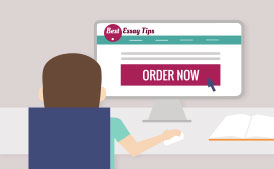 Do you have a lot of home jobs and it's not enough time?
Do you have a lot of home jobs and it's not enough time?  Just go to our website and order your papers from us!
Just go to our website and order your papers from us!  Get your finished paper within the specified time!
Get your finished paper within the specified time! How to Write a Narrative Essay
What Is a Narrative Essay?
A narrative college essay is a type of assignment that tells a story from your own life. It’s not as structured and demanding as other types of academic papers, such as argumentative projects for instance. It’s a more personal way of writing that you can base on experience.
This can be a really fun academic endeavor. It can also be an overwhelming challenge. What makes the difference? - Your inspiration.
When you’re truly inspired from a moment, event, or person, it’s not hard to write about it. When you don’t know how to approach this type of paper, however, things get serious. It’s still part of the final grade, so the pressure may be too much.
There’s nothing to worry about. We’re here to give you the ultimate narrative essay tips, so you’ll aim at this target with ease. The advice that follows is provided by professional writers who’ve written dozens of narrative papers before. The guide works!
What Are the Critical Elements of Narrative Essays?
When most students are faced with a specific type of assignment for the first time, they have an important question: “What is this paper consisted of?”
It’s one of the best questions you could possibly ask. Your professors usually give you broad instructions and a topic. Their requirements sound like this: “Please write a narrative paper on something you personally experienced. The deadline is in two weeks.”
That’s enough to scare you off. You’ve never tackled this kind of content before so you don’t even know where to start.
Start by acknowledging the most crucial elements of the narrative paper. They will help you write the sample.
Title
First of all, you need a topic or a theme. In general, an essay narrative is focused on two major components: personal story and analysis of that occurrence. The topic can be anything that allows you to cover those sections during the creative writing process. Here are few suggestions:
-
First day of school
-
A trip
-
Visit to a museum
-
A TED presentation that changed your life
-
The first encounter with higher education
-
An exciting thing you learned
-
Description of an occurrence when you got lucky
-
Getting caught in plagiarism
-
Summer vacation
-
Running marathon
-
A tragedy
-
Winter scene
-
Falling in love
-
A frightening adventure
-
Taking risks
-
Parental divorce
-
The best sunrise you’ve seen
-
A random act of kindness
These are topics; not headlines. The title has to be more creative. If, for example, you choose summer vacation as your topic, the title can be something like My Vacation in Greece: Islands, Olives, and Endless Blue.
This is not the first thing you need to write. Just think of your topic, and go through the remaining stages of the process. Then, when the entire paper is ready, you’ll have a logical title to place at the top.
A Story
The narration is basically a story. Whatever topic you choose; you’ll have to develop it into an intriguing anecdote with a manageable plot. This won’t be a novel. It’s just a personal essay for school, so it will be a simple story. Still, it has to catch the reader’s attention and hold it to the very end.
You’ll make lasting impressions only if you use vibrant details to describe this ordeal. When reading, the teacher should see the things you saw and feel the feelings you felt.
Introduction, Body, and Conclusion
Those are the main structural elements of an essay narrative. Before you start writing the essay, you’ll need to craft a template that outlines these parts.
This type of writing does not require a strict structure. Still, you need an introductory paragraph that sets the tone and tells the reader what this story is about. In the body of your essay, you’ll describe the event or incident, and then you’ll wrap it up with an impressionable conclusion.
A good plan will make the writing process much simpler. You’ll already know how to start a narrative essay. All you’ll need to do is start!
How to Write a Narrative Paper
Now; onto the main narrative writing tips! How do you compose the essay?
Follow Your Format
Academic writing needs consistency. Regardless of the fact that this is a personal narration, it should still have a logical flow. When you have an outline, you won’t risk making unnecessary digressions that would distract the reader from the main ideas.
Use First-Person Language
I and we are not usually recommended in academic style, but narrative college papers are an exception.
Describe the Main Characters in the Storyline
You’re the main character, but who else shows up? If you’re talking about your holiday, explain who you were with and who you met there. Other people add depth to any personal experience, so make sure to describe their most vivid characteristics.
Describe the Setting, Too
The where is just as important as the how in plots. Paint a picture of the location in specifics.
Include Dialogue
Dialogues make texts easier to read. When people read books, they move through the pages easily when they involve conversations. Fortunately, this type of essay allows you to include dialogue, so you should certainly use that opportunity.
Put the lines in quotation marks, so the reader will know that it’s one of the characters speaking.
Use Colorful Language
All people have similar stories to tell. But they are unique at the same time! Do you know what makes them special? The way they are told.
Use special details to describe this encounter. Your language should be vivid and it should show instead of tell.
How to Revise a Narrative Writing Project
Now that you went through the most significant narrative writing tips, you may feel ready to start writing the paper? Not so fast! You have to consider yet another stage: the editing process.
It’s no wonder why a professional writer will rely on an editor when they finish their writing. It’s really difficult to edit your own work, since you’re attached to it. However, if you don’t want to hire a revision service to cover this step for you, you can still go through it without assistance.
-
To begin with, read through the entire content. Did you clearly illustrate the main theme? Is there a logical flow in the paper? Is there consistency in your style? Can the reader easily identify the point? You have to make those things very clear. If you notice any flaws in the composition or essence in the paper, you’ll have to fix them.
-
What about the word count? Your teacher has expectations that you’ll need to meet. If, for instance, you were required to write a 500-word essay, you cannot turn in a 300-word or 800-word paper. Stay within the limits of your guidelines. Edit the first draft to get there!
-
Is the grammar, punctuation, and formatting perfect? The final stage involves proofreading, so you’ll get rid of all minor issues that went unnoticed through the previous phases.
Now You Know How to Write a Narration!
A narrative paper is your chance to get your creational juices flowing! It can be an amusing assignment if you approach it with an open mind. Thanks to the narrative essay tips you just went through, you’re ready to start working on your perfect narration.
Just focus and start early! This is your initiation to storytelling. It’s a special moment in your growth as a student, so you should certainly appreciate it.
Remember: if you get stuck, you can always request professional writing help online.
Why choose us
 Premium
Premium
Quality Paper Delivery
Delivery
on-time 24/7 customer
24/7 customer
support 100%
100%
Secure payment
How it works
 1. Submit your
1. Submit your
order 2. include your
2. include your
payment detail 3. start working
3. start working
process 4. download
4. download
your papers


